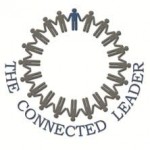 This past weekend, I had the opportunity to travel to Philadelphia PA to attend Edcamp Leadership. It was a gathering of educators from 10 different states as well as a handful of Ontario educators. Last year, I attended a similar conference in New Jersey and was excited to interact, once again, with many of the educators whom I follow on Twitter. This was my fifth EdCamp experience and it proved, once again, to be an opportunity to “listen, learn and share” with like-minded leaders. As I review my notes, there are several key themes that resonated with me and a few more which caused great, deep and sometimes heated conversation on our 11 hour drive home.
This past weekend, I had the opportunity to travel to Philadelphia PA to attend Edcamp Leadership. It was a gathering of educators from 10 different states as well as a handful of Ontario educators. Last year, I attended a similar conference in New Jersey and was excited to interact, once again, with many of the educators whom I follow on Twitter. This was my fifth EdCamp experience and it proved, once again, to be an opportunity to “listen, learn and share” with like-minded leaders. As I review my notes, there are several key themes that resonated with me and a few more which caused great, deep and sometimes heated conversation on our 11 hour drive home.
One common thread within each session was the question as to how to connect others to social media. Tom Whitby succinctly shared that “the worst advocate for being a connected educator is a connected educator”. If that is true then how will we get our colleagues to see the benefit of using social media to engage their staff, their students and their parent communities? 
We’ve experienced the same challenges when it comes to sound pedagogy in the area of inquiry based learning, problem solving or comprehensive literacy instruction. Those who are doing it, can’t imagine a world without it and can’t imagine why others aren’t submerging themselves in this vast array of professional learning and resources.
Another phrase which was shared by Jay Eitner (New Jersery superintendent) was “that being connected flattens hierarchy”. I have come to find that to be one of the most meaningful advantages of social media. Within 140 characters, one can easily read the thoughts, views and opinions of others from all walks of education as well as reach out and seek information, resources or clarification. I’m continually amazed when authors like Todd Whittaker and Dave Burgess reply to a Tweet as if they were the teacher next door. I love that! Within many organizations, you see the interaction between directors, superintendents and first year teachers ~ all very seamless. The common goal of professional learning transcends any hierarchy of position, paycheck or personal agenda.
For me Edcamp is a fine blend of new resources (can’t wait to try out Smore, Teachercast and Cel.ly) and thought provoking discussions. At Edcamp Leadership there was a distinct camaraderie between many of the Edcamp Leadership organizing team and some of their inside jokes were lost on us “out of towners”, but at the end of the day, using social media and various technology tools to have an impact on the learning of others (leaders, teachers, students and parents) was at the heart of each conversation.
It was a privilege to spend a day in Philly with connected, concerned and caring educators.
Have you ever attended an EdCcamp? If so, what resonated with you?

